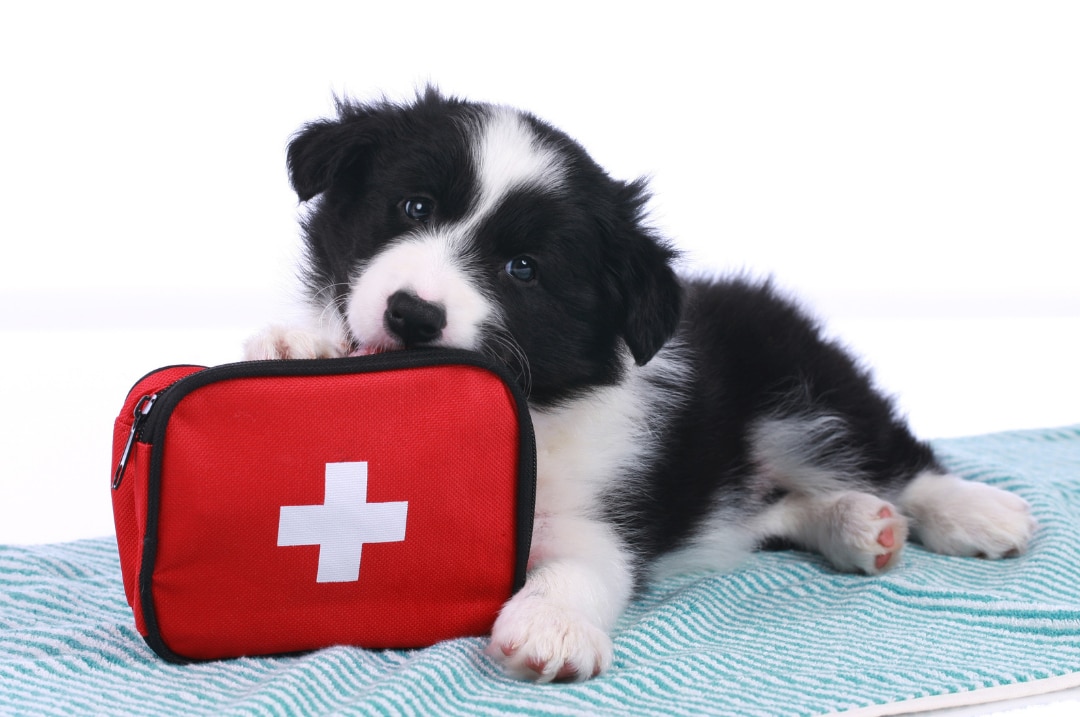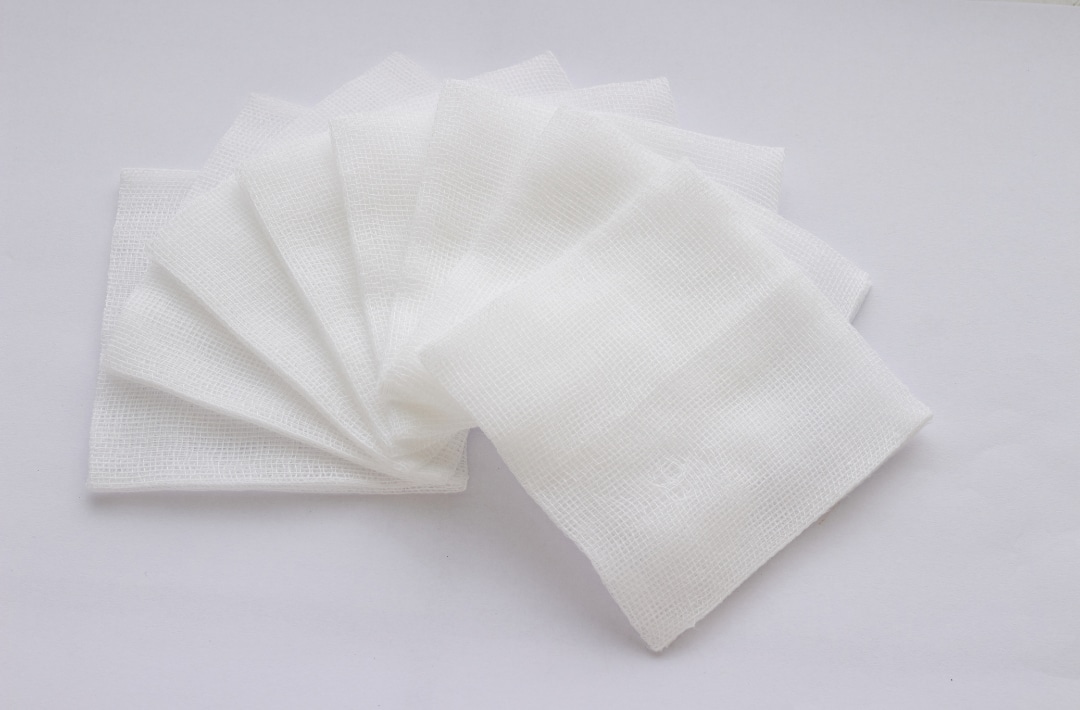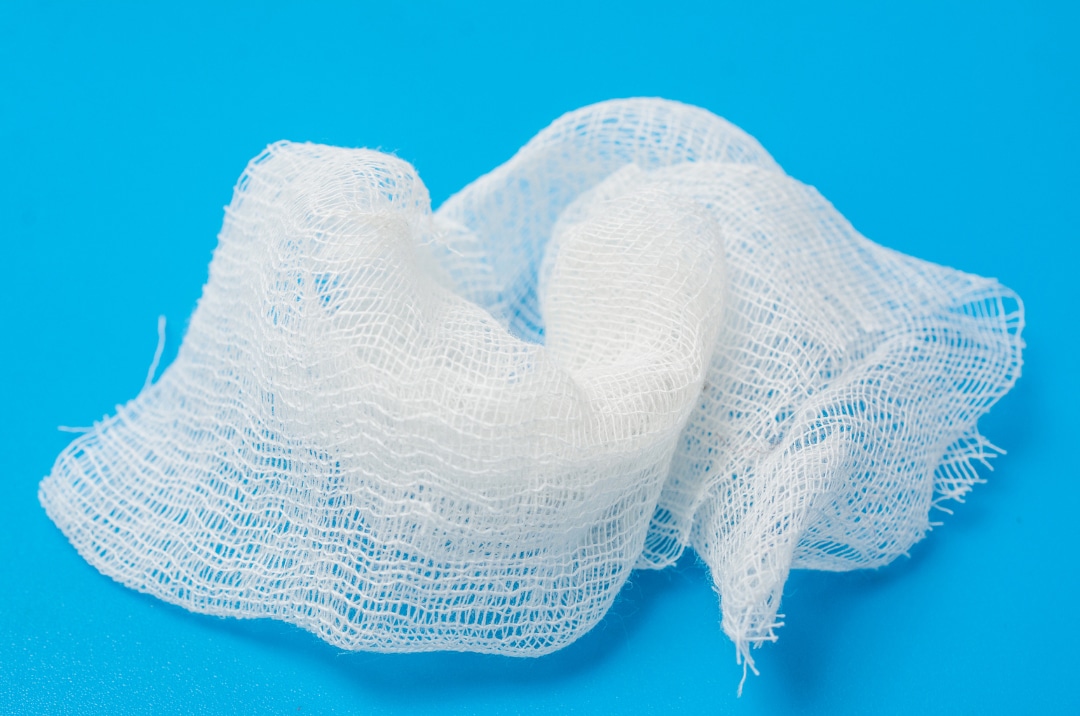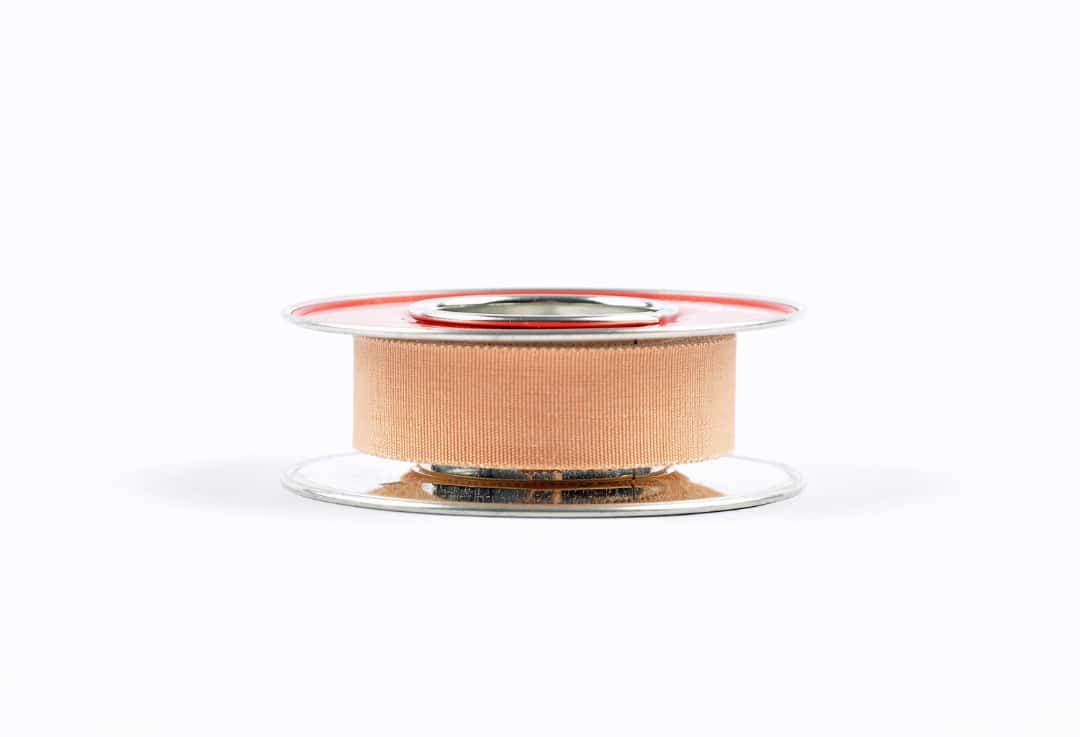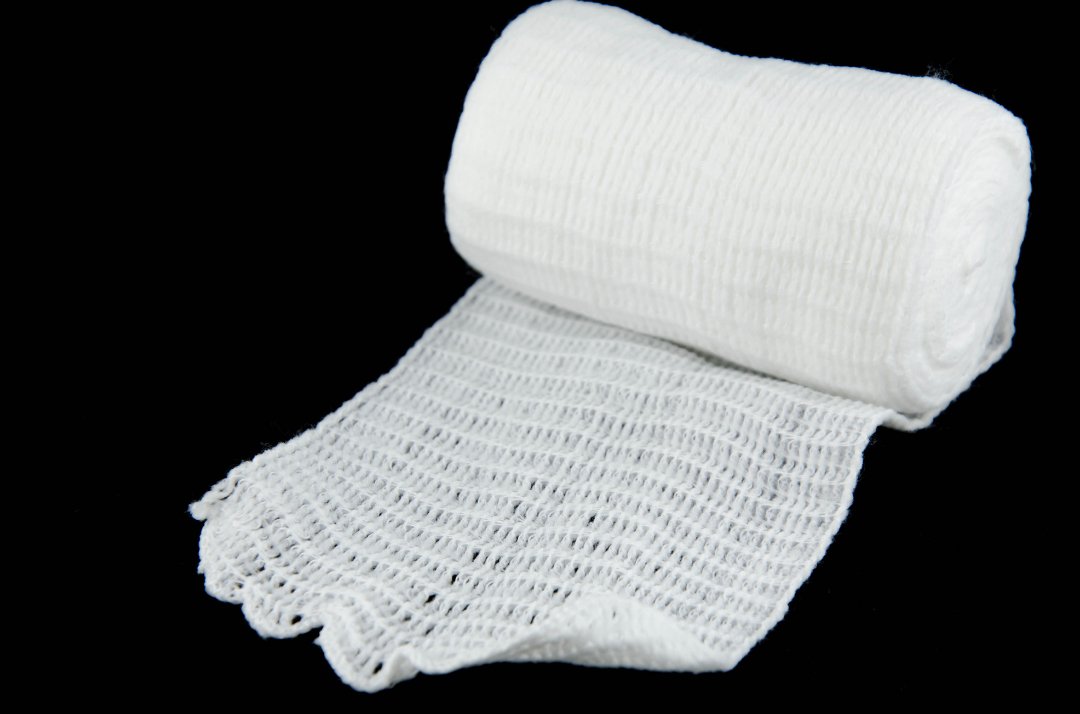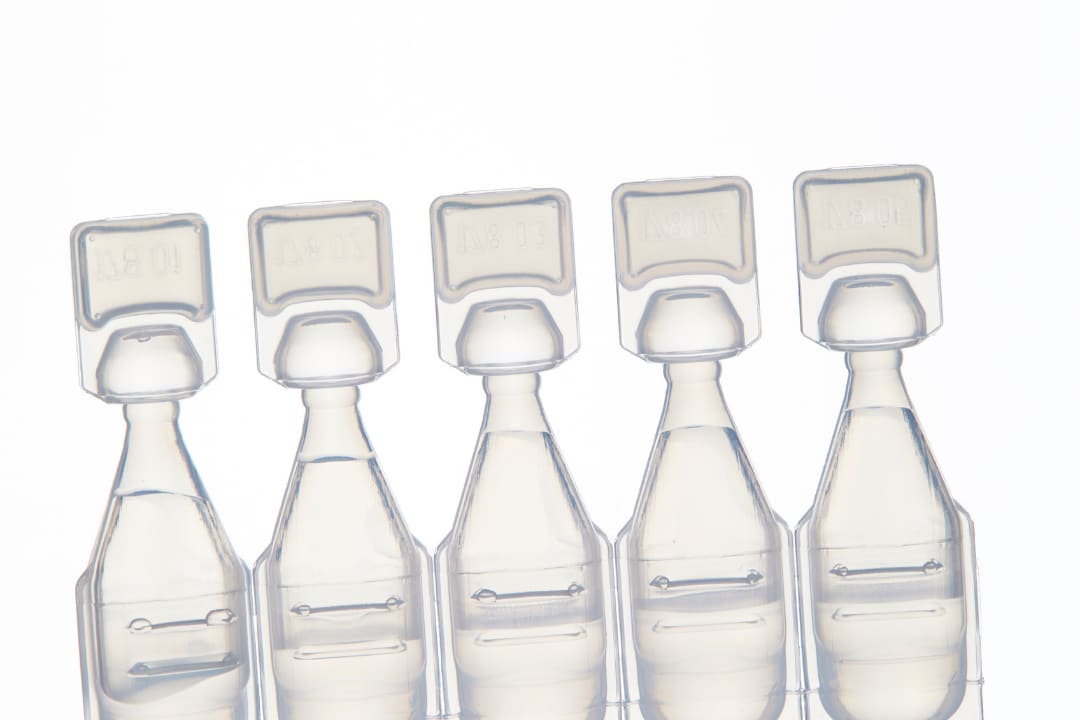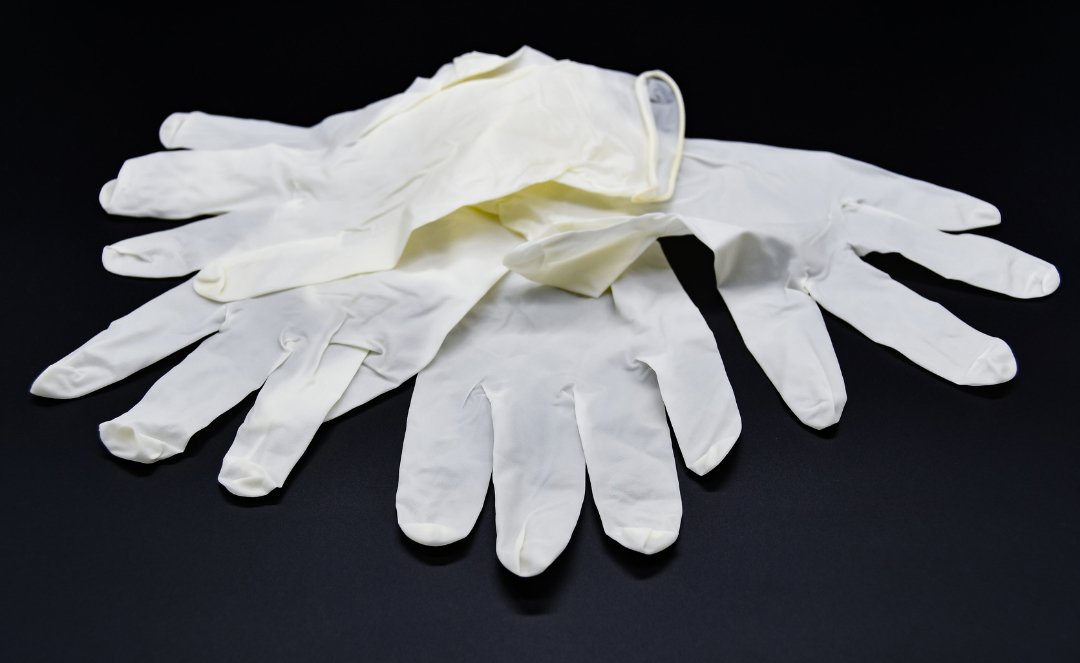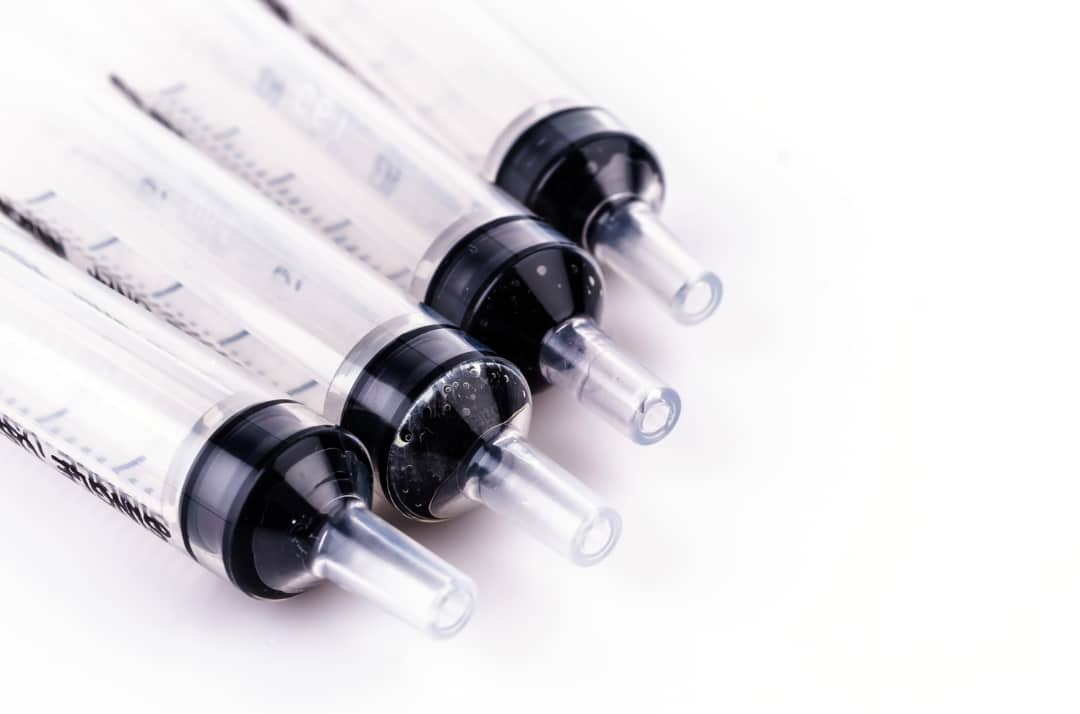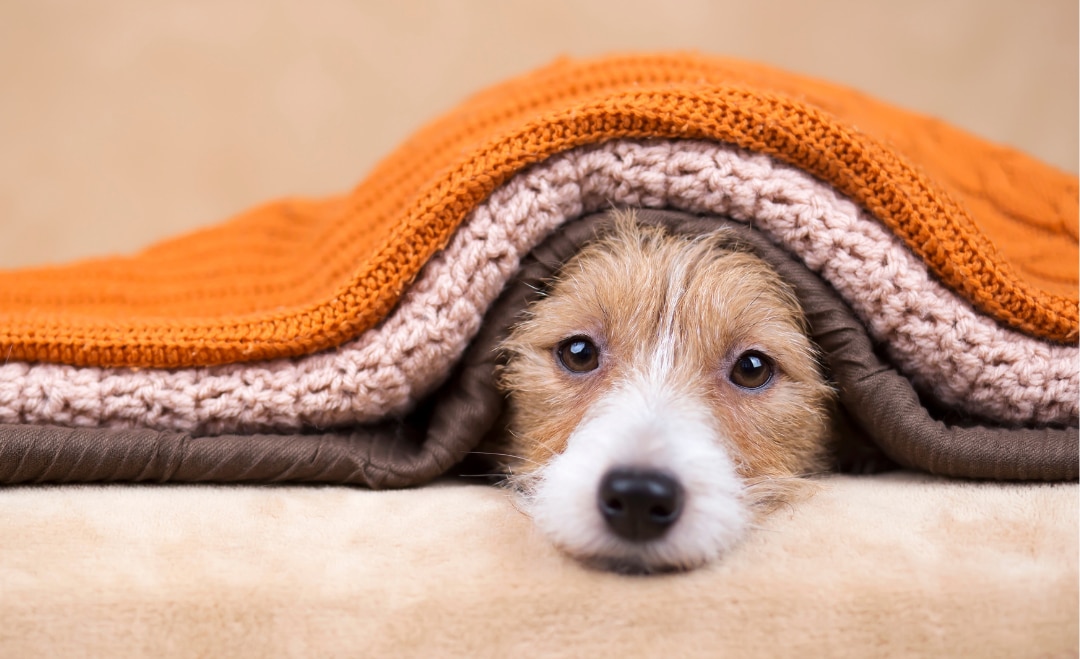Like us humans, our pets can also suffer from injuries anytime and anywhere. Just like we have a basic first aid kit to turn to when we need a bandage for a cut or tweezers to pull out a nasty splinter, our pets also need their own first aid kit. As accidents can happen unexpectedly, it’s always best to be prepared by having a pet first aid kit at home and one in the car for those times you and your pet are out and about. But what should you include in the kit? We’ve put together a checklist to help you put together your very own pet first aid kit.
What to include in a pet first aid kit
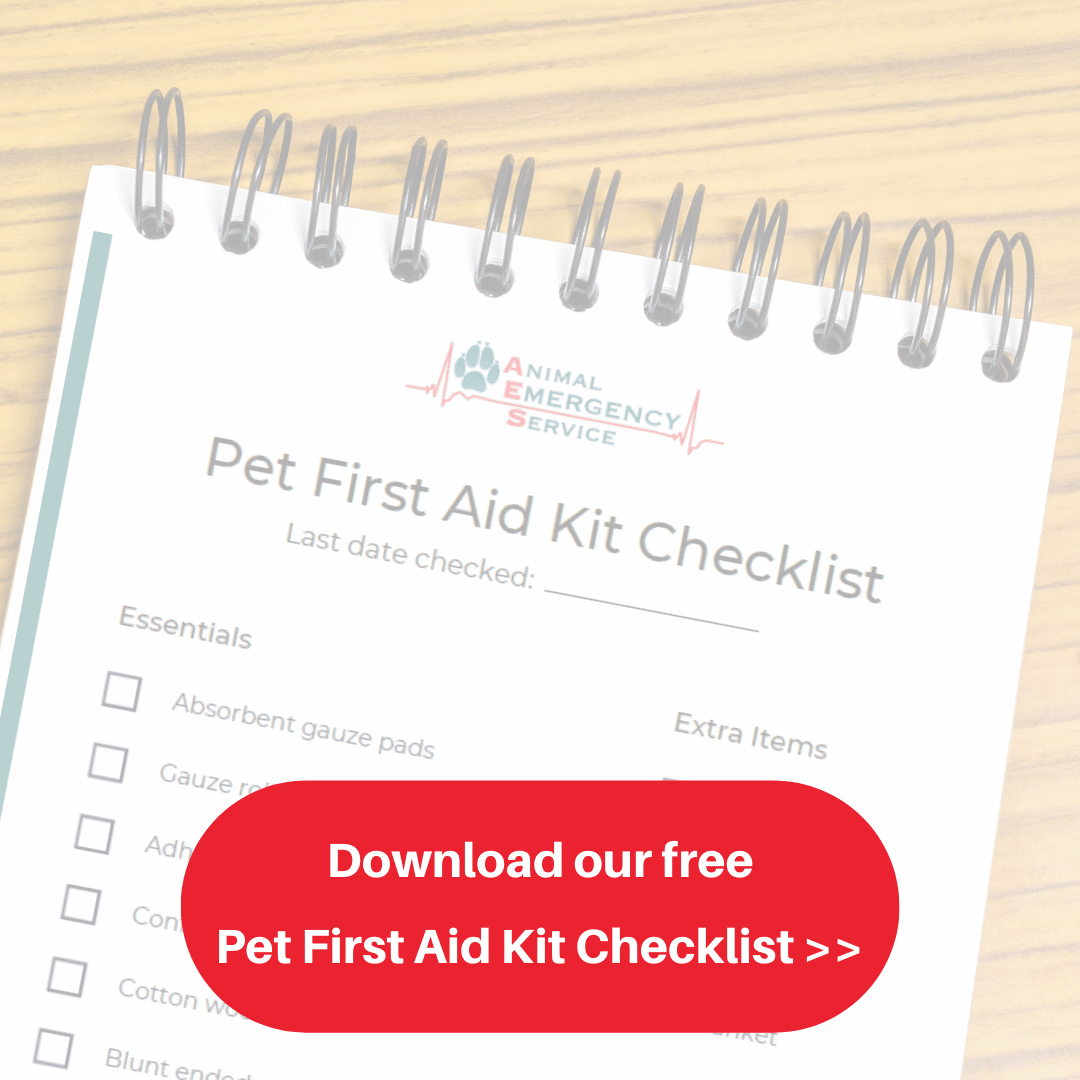
Everything you need to have a well-stocked basic pet first aid kit is available at your local chemist. Your local vet may also carry the supplies you need or even have pet first aid kits available for purchase.
Remember to keep the kit out of reach of small hands and paws, and check it regularly for any missing, low, or expired supplies.
Pet first aid checklist
While there are a number of items you can include in your pet first aid kit, it’s best to speak with your vet about what you should include in yours. Your pet’s age and life>download our free pet first aid kit checklist to make sure your kit has everything it needs.
Essential pet first aid supplies
The basic pet first aid supplies each kit should include are:
- Storage container to store supplies
- Absorbent gauze pads to stop bleeding or to use as bandages
- Gauze roll to hold gauze pads and cotton wool in place
- Adhesive tape to secure gauze pads and roll
- Conforming bandage to cling to your pet’s body or limbs and apply pressure to wounds
- Cotton wool balls for bathing wounds and applying pressure to wounds
- Blunt ended scissors to cut gauze and adhesive tape, and to cut fur to better access any wounds
- Sterile saline solution to flush out wounds, eyes, or mouth
- Protective gloves to keep your hands clean from the wound
- Phone number and address for your primary vet, closest vet clinic, and closest emergency vet
Extra pet first aid supplies
Other items that are handy to also include in your kit are:
- Syringes are useful in flushing out wounds and eyes (be sure to only use saline or clean lukewarm water)
- Pocket torch for easier inspection of ears, eyes, and mouth
- Towels or pieces of cloth that can be wetted and placed over the animal to cool them down.
- Blanket or towel for pet transport and warmth
Please note, pet first aid kits should be used as a short-term measure only before veterinary treatment can be administered. If your pet is experiencing serious injury or illness they need to be taken to a veterinarian immediately.
If you suspect your pet may be ill or injured, contact your local vet immediately or your closest Animal Emergency Service hospital.
For more information about what is and what to do in a pet emergency, visit our Pet Emergency Guide.

